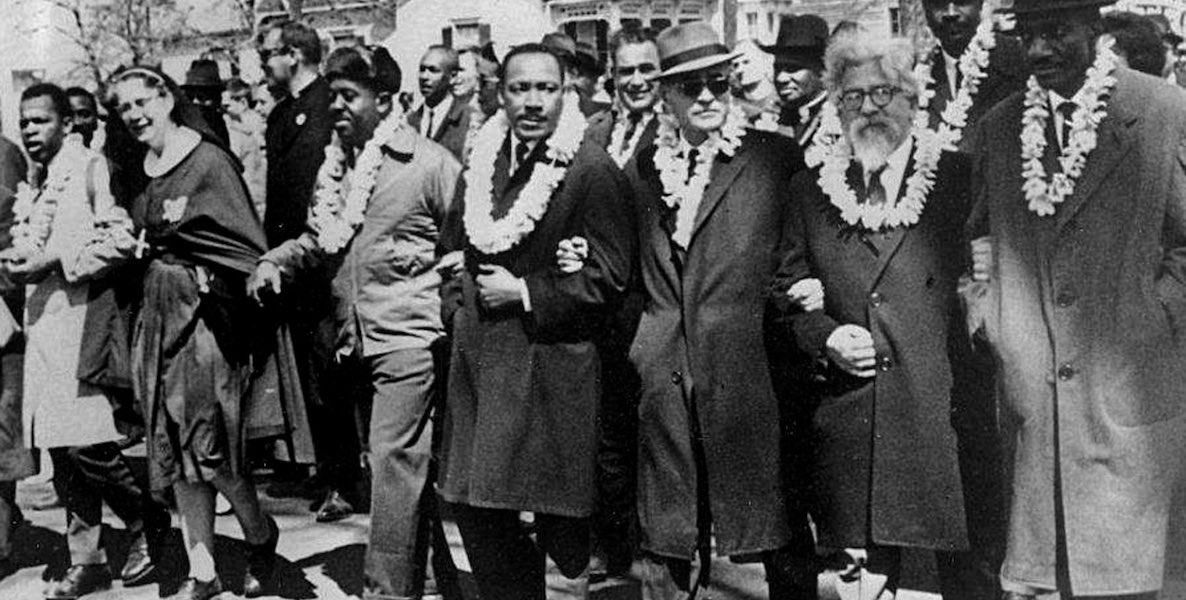[Ed note: A version of this story first ran in 2016.]
In the wake of the murder of Freddie Gray, the City of Baltimore has followed a painfully familiar path. First comes the shock, then the anger; next comes the polarized protesting and then, sadly and counterintuitively, the destructive violence and even looting.
It is at this point that most of the commentators and news-readers mount their lofty perches of judgment in order to draw their intellectual lines in the ethical sand. While these news-talkers may be able to condescendingly understand the frustration of those of us who have grown weary of watching the mounting injustices heaped upon the Black community, they still simply decry and denounce the “senseless” violence.
It is the word “senseless” that annoys me, for a couple of reasons.
First of all, that word suggests that the people being observed—Black people, mostly—are acting without reason and beyond comprehension. It would then logically follow that there is no purpose in trying to understand this “senseless” behavior (after all, it makes no sense!), and hence there are only one of two things remaining to do: 1) gain control over the “senseless” creatures; or 2) eliminate them.
RELATED: A timeline of how Philly helped shape Martin Luther King Jr.
That’s what you do with those things that both defy understanding and appear to be resistant to reason; you either corral them (like wild horses), or you get rid of them (like unwanted pests). And you’d best believe that there are more than a few folks who feel that way when they look at individuals involved in the kind of violent unrest that we are now seeing in Baltimore—and that we watched all last summer in Ferguson. Either control them, or eliminate them; but do whatever it takes to end the “senseless” violence.
That brings me to my second point. What we are seeing is not “senseless”.
World-renown psychiatrist Ivan Boszormenyi-Nagy presented research that concluded that this type of violent destructive behavior was not only understandable, but should be anticipated by reasonable and just people. In Between Give and Take: A Clinical Guide to Contextual Therapy, he had a name for the phenomenon; he labeled it “Destructive Entitlement” and asserted that it was the natural response of individuals who had absorbed unfair and unjust treatment in a relationship with others.
According to Boszormenyi-Nagy, those who exhibit this Destructive Entitlement are simply trying to “balance the ledger” when they act out rage born of injustice and unfair treatment. In short, in the absence of fair treatment (justice) occurring within their lives, people who are destructively entitled attempt to create justice by making others uncomfortable while simultaneously bringing rewards to themselves.
Let me be clear: This is not a healthy response. It is also not mature, desired behavior—we would all prefer that people respond to injustice by filing grievances and waiting patiently in line until it is their time to be heard. You may even call it brutish—or as Mayor Stephanie Rawlings-Blake labeled it, “thuggish”.
But you cannot call it senseless.
Martin Luther King once prophetically stated that “a riot is the language of the unheard.” He neither condoned rioting, nor excused destructive behavior; he simply realized that you can’t cure an illness until you try to understand it.
Opening the mind—and the heart—to try to understand what one would prefer to dismiss is the beginning of understanding; and understanding is the beginning of healing and change. Those burning and yelling and looting are not acting in a vacuum; and in their own inarticulate and counterproductive way, they are crying out to be heard, and understood.
Doesn’t that make sense?
![]()
RELATED
Header photo: Rabbi Abraham Joshua Heschel (second from right) marches in Selma with Martin Luther King Jr.


